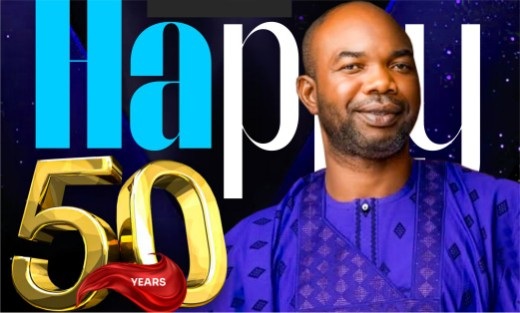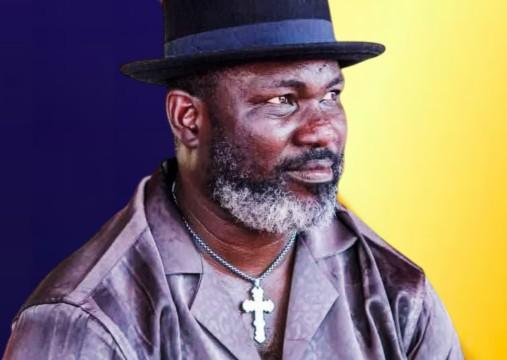TINUBU’S $100,000 GIFT TO SUPER FALCONS: A Parable of a Country that forgot its Wounds, By Ayoola Faseyi

The Greek philosopher Socrates once said, “The unexamined life is not worth living.” But in today’s Nigeria, we appear more concerned with shining surfaces than confronting the festering sores beneath. The Yoruba people have a saying: "Ti ikun n ro, ko ni fi aso bo inu e," which means “When the stomach aches, fine clothes can’t hide the pain.”
We may hang medals on our athletes, but the groans of a hungry nation still echo louder than the applause they receive.
President Bola Ahmed Tinubu recently announced what many have described as a grand and generous gesture to the Nigerian Super Falcons for their stellar performance at the 2024 Women’s Africa Cup of Nations. Each player is to receive a whopping $100,000 in cash, a three-bedroom apartment, and a national honour in the rank of Officer of the Order of the Niger (OON).
The technical crew members are not left out, as they are set to pocket $50,000 each. To crown it all, the Nigerian Governors Forum pledged a collective ₦360 million to support the reward package, ₦10 million from each of the 36 state governors.
When you sit down to do the arithmetic, the total amounts to over ₦4.3 billion shared among fewer than 40 people.
Let it be clear: the issue is not whether these women deserve to be honoured. They absolutely do. The Super Falcons have consistently lifted Nigeria’s name on the global stage. They have played with heart, with grit, and with the kind of determination that makes a nation proud. In a country often starved of good news, their triumph is a refreshing breeze.
But while we celebrate, we must not lose our sense of proportion. Nigeria is not merely hungry for victory; it is starving in the literal sense. A country where the new national minimum wage is ₦70,000 — a figure that struggles to buy a bag of rice has no business spraying billions around like confetti. It becomes an insult to those who toil daily and get nothing but struggle in return.
Let us talk about the other Nigeria. The one not captured in stadium lights or award ceremonies. The Nigeria where families sleep in darkness because there is no electricity. Where hospitals operate with lanterns, and women give birth by phone torchlight. Where children trek for miles to attend schools with no chairs, no toilets, and no teachers. Where workers are owed several months in arrears and pensioners collapse in queues, waiting for stipends that never come.
There is an ancient Yoruba proverb that warns, "Ti ile ba n jo, a ki n se efun l’enu." Translated, it means “When the house is on fire, you do not waste time chasing rats.” But in Nigeria, the rats are being fed milk while the house is burning to ashes. The economy is choking. Fuel prices have climbed so high that many cars now sleep in garages. Food is becoming a luxury, not a necessity. Basic healthcare is slipping further out of reach. Transport fares have become unbearable, and inflation continues to eat up every naira earned.
In such a moment, the optics of billion-naira rewards are troubling. The message is clear: the government can move mountains for football, but not for education, health, or basic welfare. Nigerians are watching. And they are asking: if money can appear so quickly for athletes, why is it so hard to fund hospitals, improve public schools, or ensure pensioners receive their dues?
It is not the size of the reward that stings; it is the silence of the system when it comes to other heroes. The teacher who shapes young minds, the nurse who stays awake through the night, the police officer who faces danger with outdated weapons — these people hardly get a thank-you, let alone national honours. Yet, their roles are just as vital.
A responsible government must balance celebration with sensitivity. There is nothing wrong with appreciating national heroes, but it must be done with wisdom. A more modest, symbolic gesture could still have lifted morale, inspired the next generation, and protected the dignity of a struggling people.
Rewarding excellence is noble, but doing so without reference to the broader context is reckless. It tells the hungry mother that football is more valuable than her child’s school. It tells the retired civil servant that his decades of service do not count. It tells the young graduate that kicking a ball is more rewarding than burning the midnight oil.
There is a time to celebrate and a time to rebuild. Nigeria’s wounds are open. Its pillars are weak. It needs leaders who understand that leadership is not just about pleasing the crowd. It is about making hard decisions that serve the greater good. Applause fades quickly. Hunger does not. National pride is not built on grand gestures but on deliberate action, equity, and compassion.
There is yet another Yoruba saying: "Ile la ti n ko eso re ode," which means “Charity begins at home.” A nation that cannot provide dignity for its sick, its old, and its young has no business throwing gold into the air. Let us fix our roof before we start painting the walls.
No one says the Super Falcons should not be rewarded. But the government must remember this: when a house is shaking, you strengthen the pillars before you decorate the roof.
ABOUT THE AUTHOR: Ayoola Faseyi, a journalist, writes from Abuja. ([email protected])



